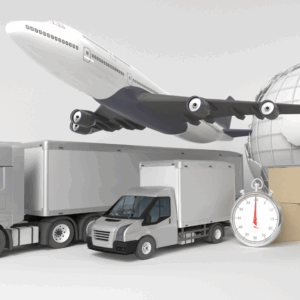
Shipping small or irregular loads can be expensive and inefficient. But what if you could share that cost—and space—with others headed in the same direction? That’s the logic behind freight consolidation, a strategy that combines smaller shipments into a single, larger, and more economical shipment. Whether using LTL shipping, air freight, or handling international cargo, freight consolidation can help reduce costs, enhance supply chain efficiency, and lower your carbon footprint. In this article, we’ll explain how it works, its benefits, and when to use it, as well as best practices and frequently asked questions from ExFreight.
What Is Freight Consolidation?
Freight consolidation involves combining smaller shipments from different shippers into one larger shipment. This is especially useful for businesses that lack sufficient volume to fill a truck or container independently. Instead of paying for unused space, shippers share the cost of transportation.
What Is Consolidation in Trucking?
Consolidation typically refers to LTL (less-than-truckload) shipping in the trucking industry. Instead of renting an entire truck, your cargo shares space with other shipments. This model reduces costs and increases route efficiency.
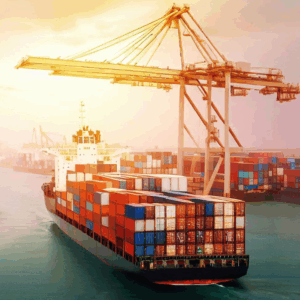
An air freight consolidator is a logistics provider that combines air shipments from various customers into a single cargo load. It often leverages its relationship with airlines to negotiate more favorable rates, ideal for small packages that don’t require a dedicated flight.
What Is the Purpose of a Consolidator?
The primary purpose of a freight consolidator is to:
- Reduce costs by optimizing container or truck space
- Improve logistics coordination and speed
- Facilitate documentation and customs handling
- Offer access to better rates, especially for SMEs
Types of Freight Consolidation
- Inbound Consolidation
Shipments from various vendors are consolidated and sent to a central location, such as a warehouse or distribution center.
- Outbound Consolidation
Goods from a central location are consolidated for delivery to various end destinations.
Benefits of Freight Consolidation for Shippers
- Lower Shipping Costs
Sharing space in a truck or container means each shipper pays only for what they use. LTL rates and instant shipping quotes make budgeting easier.
- Improved Supply Chain Efficiency
Consolidation helps optimize transportation routes and reduces the number of handling points, resulting in fewer delays and less damage.
- Better Sustainability
Consolidated shipments mean fewer vehicles on the road or planes in the air, significantly cutting emissions.
- Greater Flexibility
Freight consolidation makes international shipping more accessible for small and medium-sized enterprises (SMEs) by allowing smaller loads to move affordably.
- Enhanced Tracking and Visibility
Digital platforms like ExFreight offer real-time tracking, providing shippers visibility in every part of the shipment journey.
When Should You Use Freight Consolidation?
You should consider freight consolidation when:
- Regular small shipments don’t require a full truck or container.
- You’re shipping internationally and need cost-effective air or sea transport.
- You’re looking to reduce operational costs without compromising service quality.
ExFreight’s Approach to Freight Consolidation
ExFreight offers digital freight forwarding services that simplify how shippers quote, book, and track consolidated freight. With access to real-time rates for LTL shipping, air freight delivery services, and international freight services, users can make informed decisions about their shipping.
Key Features:
- Instant air freight quotes
- API integration for TMS systems
- Density-based pricing to avoid reclassification charges
- Global coverage to over 150 countries
- Cargo insurance options for booking
- Real-time shipment tracking
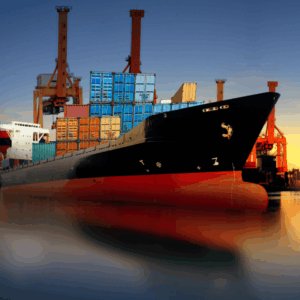
- Accurate Weight & Dimensions
Ensure your cargo’s weight and size are precise. ExFreight’s system calculates the freight class for Less Than Truckload (LTL) quotes.
- Plan Ahead
Freight consolidation works best with some lead time, especially for international and air freight.
- Use Technology
Digital tools like ExFreight’s online platform help you obtain instant rates, prevent manual errors, and track your cargo globally.
- Choose the Right Mode
For urgent deliveries, use air freight transport. For cost efficiency, choose ocean LCL. Match the mode with your priority.
Frequently Asked Questions (FAQs)
What is the maximum coverage without buying additional insurance?
ExFreight offers limited liability coverage up to $10,000 for most shipments.
How do I buy additional insurance?
During the booking process, input your shipment’s value and commodity details. The platform instantly calculates your premium.
How do I file a damage claim?
If your goods are damaged, log in to your account, navigate your shipment, and use the claim feature. Note: A $1,000 deductible applies for full insurance claims.
Is freight consolidation available for Amazon FBA?
ExFreight offers delivery to Amazon FBA locations, including liftgate and appointment scheduling services.
What are LTL shipping and LCL shipping?
- LTL: Less-than-truckload – domestic shipping of smaller loads.
- LCL: Less-than-container-load – international ocean freight for small shipments.
Conclusion: Simplify and Save with Freight Consolidation
Freight consolidation effectively reduces costs, increases efficiency, and supports sustainability in your logistics operations. With ExFreight’s digital platform, you can access real-time freight quotes, book consolidated shipments, and track them all from one dashboard. You can optimize every shipment, whether LTL, air freight, or international transport.
Ready to lower your shipping costs and streamline your logistics?
Try ExFreight’s platform today for instant rates and innovative consolidation solutions.


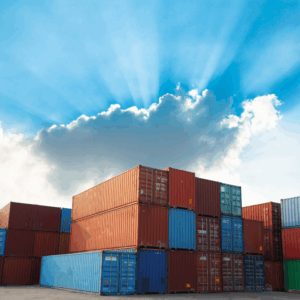
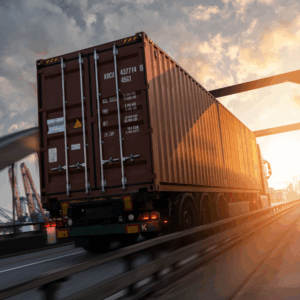
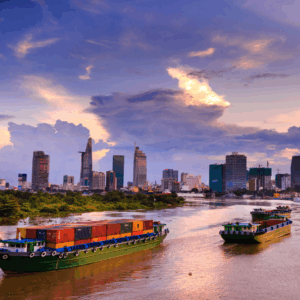

Leave A Comment
You must be logged in to post a comment.